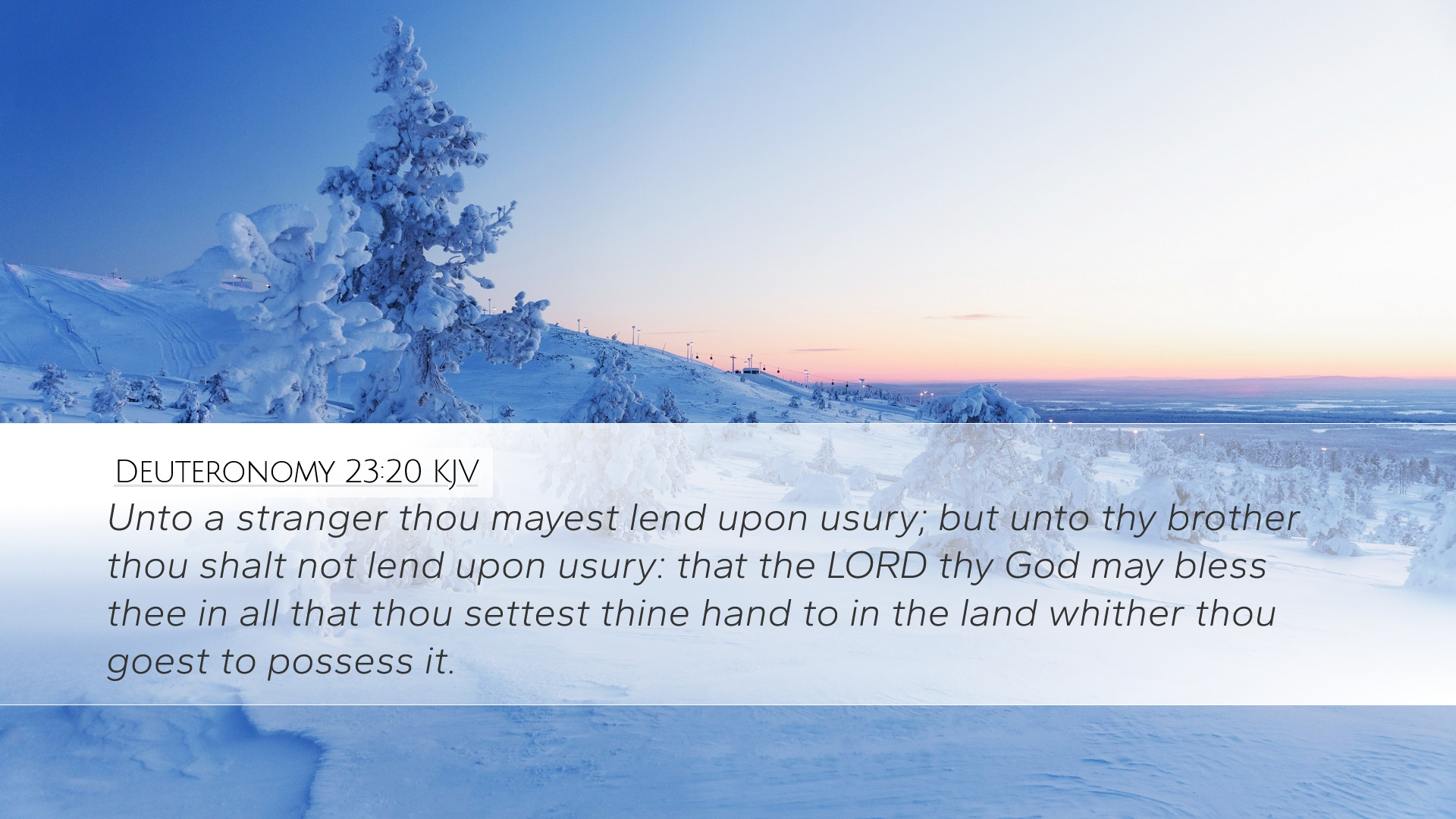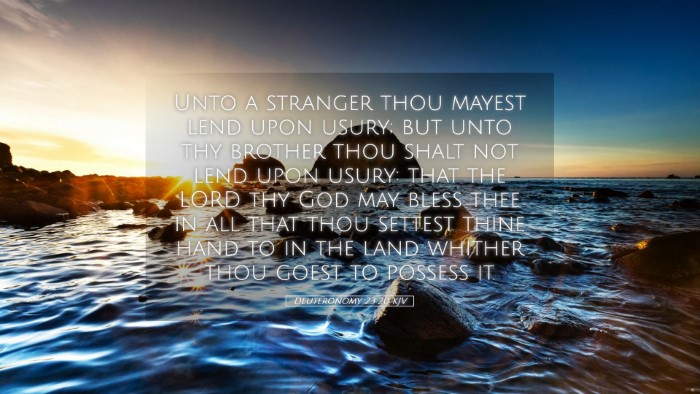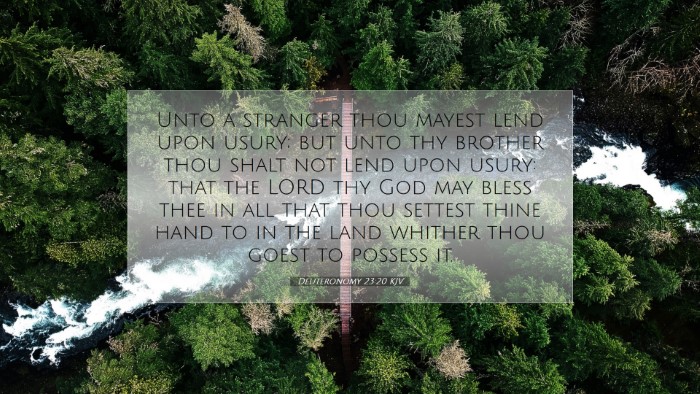Commentary on Deuteronomy 23:20
Verse Reference: Deuteronomy 23:20 - "Unto a stranger thou mayest lend upon usury; but unto thy brother thou shalt not lend upon usury: that the Lord thy God may bless thee in all that thou settest thine hand to in the land whither thou goest to possess it."
I. Contextual Background
The Book of Deuteronomy serves as a series of speeches by Moses to the Israelites on the verge of entering the Promised Land. It encapsulates the law and covenant obligations directed toward maintaining faithfulness and integrity within their community.
II. Usury in Ancient Israel
Understanding the term "usury" is critical. In the context of ancient Israel, usury referred not only to interest but specifically to excessive or unjust interest charged to one's fellow countrymen. God's law mandated that the Israelite community demonstrate care and compassion towards one another, allowing for the welfare of all its members.
Matthew Henry's Perspective
Matthew Henry notes that while lending to a stranger with interest was permissible, the Israelites were called to uphold bonds of brotherhood and fraternity. He emphasizes that the family of God must support one another without exploiting variations in economic needs or vulnerabilities.
Albert Barnes' Interpretation
Albert Barnes points out that the legislation provided an important distinction between the treatment of outsiders and members of the community. The underlying principle is one of favoring compassion over profit when dealing with fellow Israelites. Barnes contextualizes the verse within the broader themes of justice and righteousness in socio-economic interaction.
Adam Clarke's Commentary
Adam Clarke expands on the ethical dimensions present in this law. He suggests that the prohibition of usury among the brethren illustrates the expectation of mutual assistance among the people of God. Clarke argues that this practice reflects a divine provision, promising blessing for those who adhere to God's statutes regarding communal well-being.
III. Theological Implications
This verse extends beyond the immediate context of lending practices. It reveals God’s character as one who desires justice and equitable treatment among His people. The divine promise of blessing is tied not merely to compliance with law but to the heart behind the action:
- Communal Responsibility: God places an expectation on believers to support one another, especially in economic transactions.
- Divine Blessing: God's intention to bless is connected to how His people treat one another, emphasizing that relationships matter in the divine economy.
IV. Practical Applications for Modern Readers
For modern-day believers, the principles embedded in Deuteronomy 23:20 can translate into various spheres:
- Christian Community Life: How do we support one another in times of financial need? Are we quick to lend without expectations that may harm the relationship?
- Ethics in Business: The call for fairness and justice in economic dealings extends to all forms of commerce. Christians are encouraged to pursue ethical practices that honor fellow believers.
V. Conclusion
Deuteronomy 23:20 encapsulates the heart of God's desire for His people to live in loving community, avoiding exploitation, and fostering mutual support. It reminds us that our actions, particularly regarding financial dealings with our brothers and sisters in faith, reflect the depth of our commitment to God's will. Comprehending this verse through the insights of esteemed commentaries encourages the Church to uphold God’s standards of love, justice, and community in all interactions.


